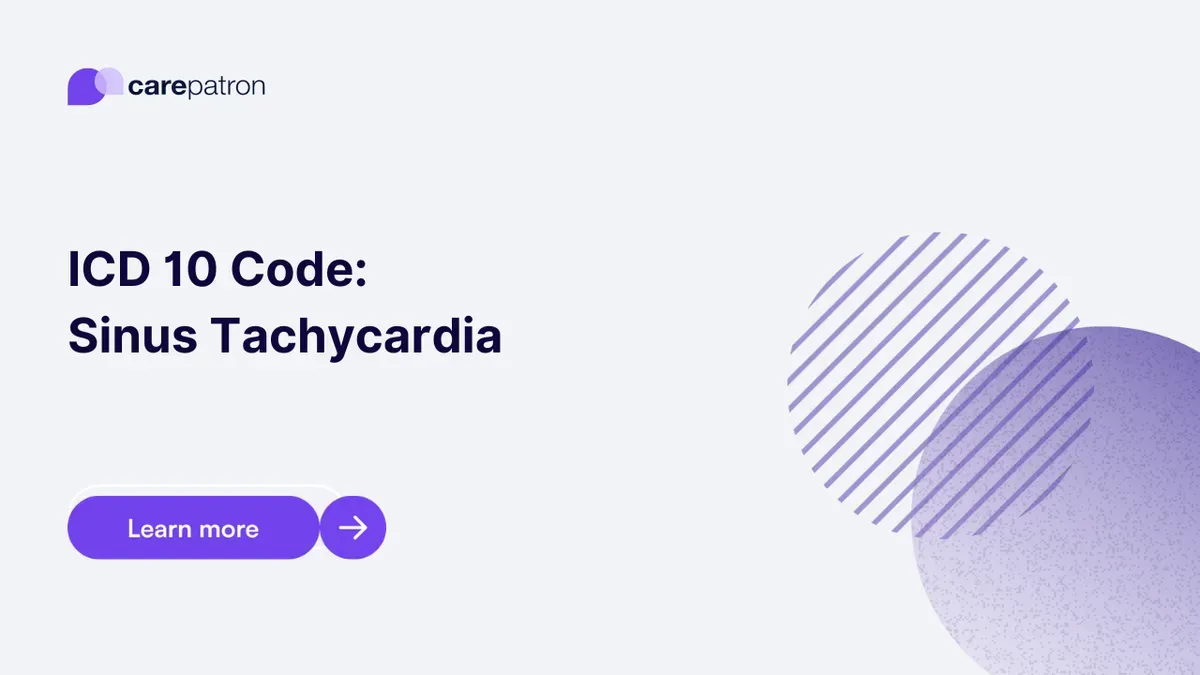
Sinus Tachycardia ICD-10-CM Codes
Explore the 2023 guide on Sinus Tachycardia ICD-10-CM codes. Delve into the specific codes, clinical descriptions, and billing implications.
Use Code
Commonly asked questions
Sinus tachycardia originates from the heart's natural pacemaker, the sinus node, and has a regular rhythm. Other tachycardias might arise from different parts of the heart and may have irregular rhythms.
Yes, stress, anxiety, and emotional distress can trigger sinus tachycardia. The body releases stress hormones that can increase the heart rate.
Sinus tachycardia by itself is not typically dangerous. However, it must be addressed if it's persistent or caused by an underlying condition like anemia or hyperthyroidism. It's essential to determine the cause and get appropriate treatment.
EHR and practice management software
Get started for free
*No credit card required
Free
$0/usd
Unlimited clients
Telehealth
1GB of storage
Client portal text
Automated billing and online payments
